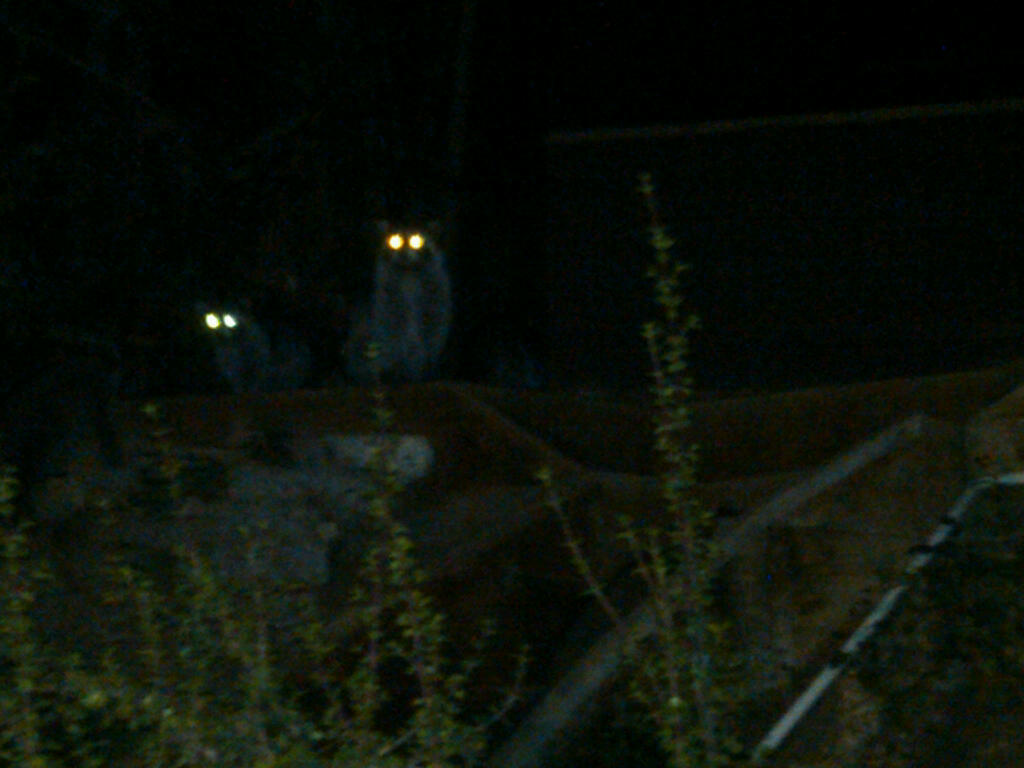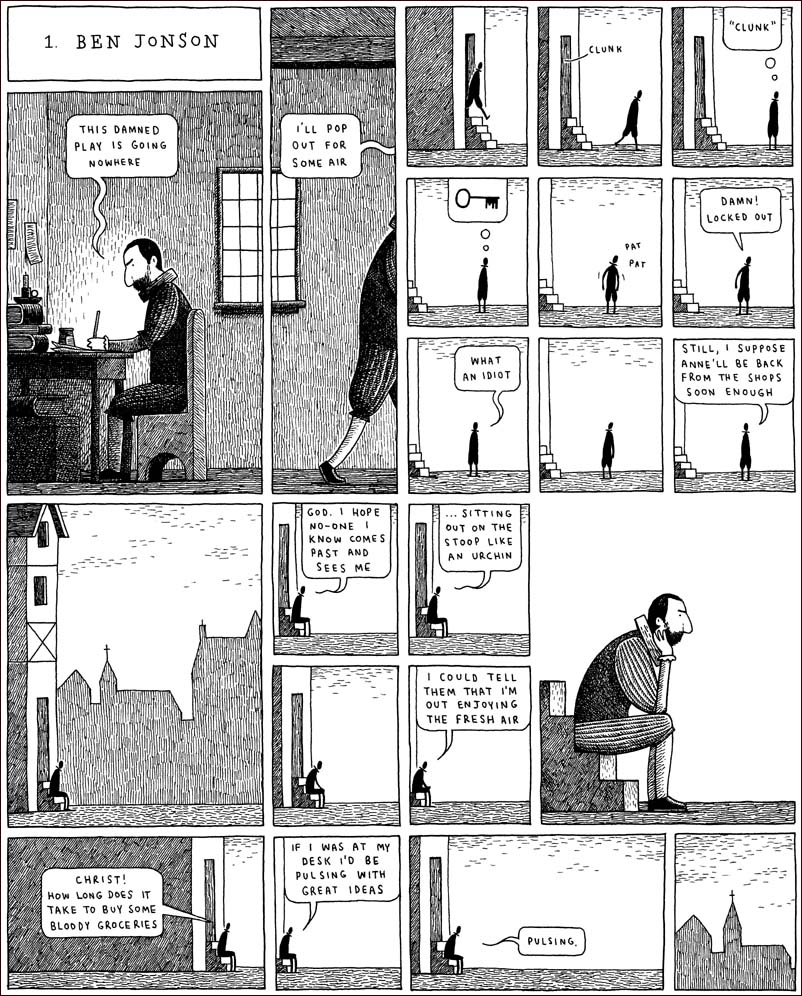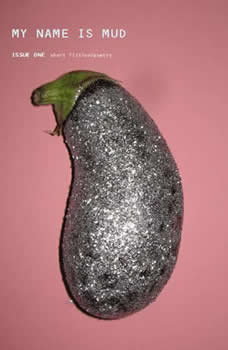RACCOONS
Tonight I was at the house of a friend whose house I’d never been to before and there was a noise in the back yard, and my friend said, “Want to meet the raccoons?” So we went to the back yard.
READ MORE >
First Sentences or Paragraphs #4: Norton Anthology of Short Fiction A-G Edition
[series note: This post is the fourth of five, in a week-long series examining first sentences or paragraphs. It’s not my intention to be prescriptive about what kinds of first sentences writers ought to be writing. Instead, I hope to simply take a look at five sets of first sentences for the purpose of thinking about how they introduce the reader to the story or novel to which they belong. I plan to post them without commentary, as one might post a photograph or painting, and open up the comment threads to your observations as readers. Some questions that interest me and might interest you include: 1. How is the first sentence (or paragraph — I’ll include some of those, too, since some first sentences require the next few sentences to even be available for this kind of analysis) interesting or not interesting on grounds of language? 2. Does the first sentence introduce any particular (or general feeling of) trouble or conflict or dissonance or tension into the story that makes the reader want to keep reading? 3. Does the first sentence do anything to immerse the reader in the donnee, the ground rules, the world of the story, those orienting questions such as who speaks, when and where are we in space and time, etc.? 4. Since the first sentence, in the wild, doesn’t exist in the contextless manner in which I’ve presented these, in what kinds of ways does examining them like this create false ideas about the uses and functions of first sentences? What kinds of things ought first sentences be doing? What kinds of things do first sentences not do often enough? (It seems likely to me that you will have competing ideas about first sentences. Please offer them here. Every idea or observation gets our good attention.) The sentence/paragraph sets we’ve been or will be observing: 1. first sentences from Mary Miller’s Big World; 2. first sentences from physically large novels; 3. the first sentences from every book written by Philip Roth; 4. first sentences from the Norton Anthology of Short Fiction; 5. first sentences from Best European Fiction 2010.]

“The slaughter hasn’t started yet.”
– Lee K. Abbott, “One of Star Wars, One of Doom”
“That was the year Hunca Bubba changed his name.”
– Toni Cade Bambara, “Gorilla, My Love”
“What he first noticed about Detroit and therefore America was the smell.”
– Charles Baxter, “The Disappeared”
“Alberto Perera, librarian, granted no credibility to police profiles of dangerous persons.”
– Gina Berriault, “Who Is It Can Tell Me Who I Am?”
“A man stood upon a railroad bridge in Northern Alabama, looking down into swift waters twenty feet below.”
– Ambrose Bierce, “An Occurence at Owl Creek Bridge”
“The visible work left by this novelist is easily and briefly enumerated.”
– Jorge Luis Borges, “Pierre Menard, Author of the Quixote” READ MORE >
As a follow up to my earlier post on the censorship of Fire in my Belly, someone has gotten a hold of the entire 20 minute Wojnarowicz Super8 film & uploaded it to Vimeo:
A Fire in My Belly from ppow_gallery on Vimeo.
2 things i’m wondering
1. I met with a student to give advice on his MFA sample writing portfolio. Since I read these portfolios for my university and wrote one for my MFA, I felt ‘qualified,’ but with Tao Lin quotation marks. Some of the student’s poems had images and word-play. Tropes. Alliteration, at least one spondee. The first page was strong. I told him, “Good. You showed on the first page that you have read poetry and care some about words. The first page is important. Thoughts are being made.” I said, “You have images immediately. A lot of people sending in won’t have any images. They won’t get in. A lot of people like to write poetry, not poems. I mean they write about pride or love…” (trailing off. not quite sure what I meant here)
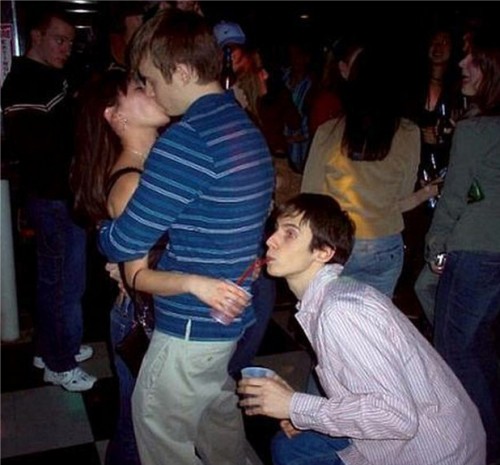
Content: The poems were about hangovers, beer, marijuana. I said, “These are sort of derivative ‘beat’ poems. That’s OK, write what you want once you’re in graduate school, but I think you should play the game a little. Get in grad school first.” I told him many readers would groan when they read poems about hangovers, beer, marijuana. “People are going to think you read some Bukowski. They’ll think you’re a type.” The phone rang 4 times and I ignored it. I said, “Do you have poems about any others things?” He did. Put some of those poems in the sample, I advised. I said again, “This isn’t a criticism of your work. Any subject is fine. Write what you want. I’m just trying to help you get into grad school.”
Kimora Lee on Writing

“I am anorexic.”
“After I had my babies I was thick.”
“I’m the boss. I don’t need the money. I’m filthy fucking rich!”
“My life is very—big!”
“Tell Deebo to bring me my supplements!”
“She felt my titty!”
“It’s a state of being.”
“I will beat a bitch’s ass!”
“Let me take off my glasses…I want you to see my eyes. I will beat a bitch’s ass!”
“I’m a girl’s girl. I’m a woman’s woman. I’m a cool girl. I’m not a bitch. There’s a difference. And the girls that try to take him are bitches. And I know every one of them in my mind.”
“I wear fur and if somebody throws shit on me I’m gonna whup your ass! I wish somebody would throw shit on me.”
“I seen your titty, but I haven’t seen you.”
“Literally. Literally…I will drag a bitch—drag her through this dirt, literally.”
“We are going to kick his ass and eat his leg.”
First Sentences or Paragraphs #3: Philip Roth Edition
[series note: This post is the third of five, in a week-long series examining first sentences or paragraphs. It’s not my intention to be prescriptive about what kinds of first sentences writers ought to be writing. Instead, I hope to simply take a look at five sets of first sentences for the purpose of thinking about how they introduce the reader to the story or novel to which they belong. I plan to post them without commentary, as one might post a photograph or painting, and open up the comment threads to your observations as readers. Some questions that interest me and might interest you include: 1. How is the first sentence (or paragraph — I’ll include some of those, too, since some first sentences require the next few sentences to even be available for this kind of analysis) interesting or not interesting on grounds of language? 2. Does the first sentence introduce any particular (or general feeling of) trouble or conflict or dissonance or tension into the story that makes the reader want to keep reading? 3. Does the first sentence do anything to immerse the reader in the donnee, the ground rules, the world of the story, those orienting questions such as who speaks, when and where are we in space and time, etc.? 4. Since the first sentence, in the wild, doesn’t exist in the contextless manner in which I’ve presented these, in what kinds of ways does examining them like this create false ideas about the uses and functions of first sentences? What kinds of things ought first sentences be doing? What kinds of things do first sentences not do often enough? (It seems likely to me that you will have competing ideas about first sentences. Please offer them here. Every idea or observation gets our good attention.) The sentence/paragraph sets we’ve been or will be observing: 1. first sentences from Mary Miller’s Big World; 2. first sentences from physically large novels; 3. the first sentences from every book written by Philip Roth; 4. first sentences from the Norton Anthology of Short Fiction; 5. first sentences from Best European Fiction 2010.]
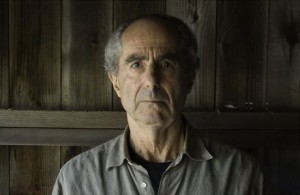
The first time I saw Brenda she asked me to hold her glasses.
– Goodbye, Columbus
Dear Gabe, The drugs help me bend my fingers around a pen. READ MORE >
Iambik Audiobooks: Lish, Tillman, Hunt, etc.

Iambik Audiobooks is a new publisher of audio editions of curated literary fiction. Their current roster includes Gordon Lish, Lynne Tillman, J. Robert Lennon, Laird Hunt, Lydia Millet, and several others, all priced at a very reasonable $4.99 for the majority of their titles.
I picked up the 18 hour compendium of Lish reading selections from his recent Collected Fictions. The recording is pristine, and includes often introductions or lead ins by Lish. It’s the first time he’s ever read his own work aloud for the public. Because the hefty length, this one is the most expensive at the site, but still only $9.99 for the whole set, and also available in smaller editions for a lower price. Hearing him read the work himself adds a whole other layer to the fold. You can preview it here [EDIT: the preview is not of Lish himself; some of the works are read by Gregg Margarite]. I feel like I’ll be listening to this again and again over the years. Maybe I’ll drive somewhere, and now I don’t have to buy like Clive Barker.
Really excited to see such an excellently executed version of a great idea. Check them out.

